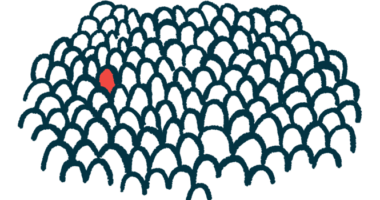My continued advocacy will lead to new amyloidosis treatment in N.Z.
If I sustain my voice for caregivers and patients, breakthroughs will come

I recently had the pleasure of attending an Amyloidosis Alliance conference in Madrid, which brought together advocates from around the world who serve the transthyretin amyloidosis community. This includes the familial amyloid polyneuropathy (FAP) and amyloid light chain or primary amyloidosis communities. Attendees discussed the challenges with these diseases that we face in our respective countries.
As an advocate for New Zealand since 2019, I’ve found that, here, treatment accessibility is the biggest issue patients and caregivers face. Medicines approved by the U.S. Food and Drug Administration, such as Darzalex (daratumumab), Amvuttra (vutrisiran), Onpattro (patisiran), Tegsedi (inotersen), and Vyndaqel or Vyndamax (tafamidis meglumine or tafamidis), will likely spend many years waiting for local Medsafe approval. That wait will continue while funding approval is sought.
This long delay, through a very arduous process with no specific timeline, has caused me and other patient advocates countless headaches and heartbreak.
I say heartbreak because of the lack of empathy displayed for people diagnosed with a rare condition, as well as a continued disregard for caregivers when they scream for help.
What patients in New Zealand need
Having been a caregiver myself, I know how difficult it is not to have the necessary tools and coping mechanisms to best care for a loved one. I watched my husband, Aubrey, transform from an active sportsman into a shell of a human because of hereditary ATTR amyloidosis. He gradually vanished right in front of me.
Since his passing in May 2022, I’ve made it a personal mandate to highlight the shortcomings we face in New Zealand through the various platforms available to me in the hope that positive change will happen.
Apart from needing more treatments, patients also need proper wraparound support. As amyloidosis is a multisystemic disease that affects most of the critical organs in the body, a specialized network of clinicians must be involved in patient care. On top of this, patients and their caregivers should receive help that promotes and protects their mental health and psychosocial well-being.
It’s a steep mountain to climb, but by voicing my experience and calling for peer support, I believe change will follow. As it stands, the CRISPR-Cas9 gene-editing clinical trials, sponsored by Intellia Therapeutics, have shown promise of a cure. New Zealand is fortunate enough to host one of the trial’s sites.
Pulitzer Prize-winner Thomas L. Friedman said, “Big breakthroughs happen when what is suddenly possible meets what is desperately needed.”
As long as I keep highlighting the urgent need for help in this part of the world, that help, I believe, will eventually arrive.
Note: FAP News Today is strictly a news and information website about the disease. It does not provide medical advice, diagnosis, or treatment. This content is not intended to be a substitute for professional medical advice, diagnosis, or treatment. Always seek the advice of your physician or other qualified health provider with any questions you may have regarding a medical condition. Never disregard professional medical advice or delay in seeking it because of something you have read on this website. The opinions expressed in this column are not those of FAP News Today or its parent company, Bionews, and are intended to spark discussion about issues pertaining to familial amyloid polyneuropathy.








Jaime Christmas
Hi Martha,
Thank you for your questions and no doubt, they are vary valid and I will try to provide some basic answers based on my experience.
What barriers exist for amyloidosis treatment in New Zealand?
- lack of disease awareness amongst general practitioners which then delay diagnosis.
- lack of proper diagnosis pathway eg. once diagnosed, patients often do not know where to go to get proper treatment and support. GP themselves are at loss on who to refer their patients to.
- lack of multi-disciplinary support from expert physicians
- approved medicine (overseas) are not approved locally and hence, are not funded by healthcare system.
- wrap-around support services are severely lacking for patients and families.
How can advocacy impact the accessibility of new treatments?
- advocacy allows for disease awareness and disease education (doctors, nurses, healthcare practitioners, family members, friends, etc.)
- advocacy lends a voice to the disparity and lack of equitable support amongst suffering patients (and their family).
- advocacy helps open doors for pharmaceutical companies to begin to engage with local specialists in order to bring new treatment options and clinical trials.
- without advocacy/ patient association like ours, the plight of patients and their caregivers go unnoticed (from those that can make a positive change).
What role does support play for patients and caregivers?
I read a quote that said, “We don't heal in isolation, but in community.” It helps tremendously to know that you are not alone.
How promising are gene-editing clinical trials for amyloidosis?
If successful, this will be where the buck stops. Time will tell.
Much regards,
J